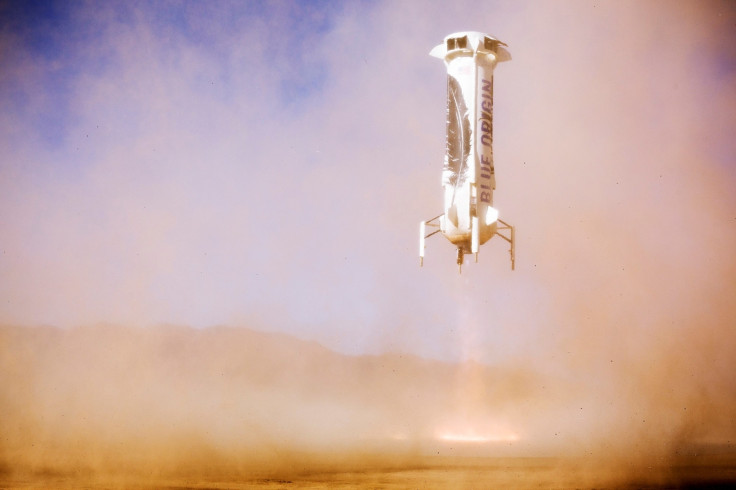Move aside SpaceX! Blue Origin returns to flight with its updated New Shepard tourist spaceship
Blue Origin's updated tourist rocket launched from a test facility in West Texas.

After more than a year, Jeff Bezos' spacefaring company Blue Origin has returned to spaceflight.
On 12 December, the company launched an updated version of its New Shepard suborbital rocket from a test facility in West Texas and was able to land the vehicle back safely in a move similar to that of SpaceX.
Hours after a source at the company told The Verge that the blast-off and recovery were successful, Jeff Bezos tweeted out a video, showcasing how New Shepard launched with the new 'Crew Capsule 2.0' sitting on top of it.
The rocket attained a maximum velocity of Mach 2.94 during ascent. Then, after reaching an altitude of 322,032ft, it started the return journey to Earth with a max velocity of Mach 3.74.
At about 6,500ft, the expansive new crew capsule, which features windows measuring about 2.4 x 3.6 ft, was separated to make a soft ground landing using parachutes. The booster, on the other side, fired its engines at 3,716ft to touch down safely.
#NewShepard had a successful first flight of Crew Capsule 2.0 today. Complete with windows and our instrumented test dummy. He had a great ride. @BlueOrigin pic.twitter.com/PZHXWXjuw9
— Jeff Bezos (@JeffBezos) December 13, 2017
Though vertical launch and landing are SpaceX's specialty, only a few know that Blue Origin was the first one to land a rocket back to Earth. The company launched and landed back its rocket in November 2015, while SpaceX came into the arena a month later.
Then, over next 11 months, Blue Origin went on to conduct as many as five launches with the same New Shepard vehicle, all of which were successful. In October 2016, the company decided to retire that rocket and start focusing on a version for crewed flights, following which things went quiet.
Now, the latest launch with a new crew capsule suggests the company is gearing up to conduct more test flights, eventually getting things ready for commercial flights, wherein paying passengers will get a short trip to suborbital space and an experience of weightlessness.
"Today's flight of New Shepard was a tremendous success," said Bob Smith, CEO, Blue Origin. "It marks the inaugural flight of our next-generation Crew Capsule as we continue step-by-step progress in our test flight programme."
So far, there is no word on when the first passenger flight will take place or how much the company will charge for the short trip to space. However, the trip is likely to be very much similar to what has been demonstrated.
Before moving anywhere close to passenger flight, the company will look to take its rocket to the skies with test pilots. These tests are likely to happen sometime next year, with first passengers taking the trip in 2019.





